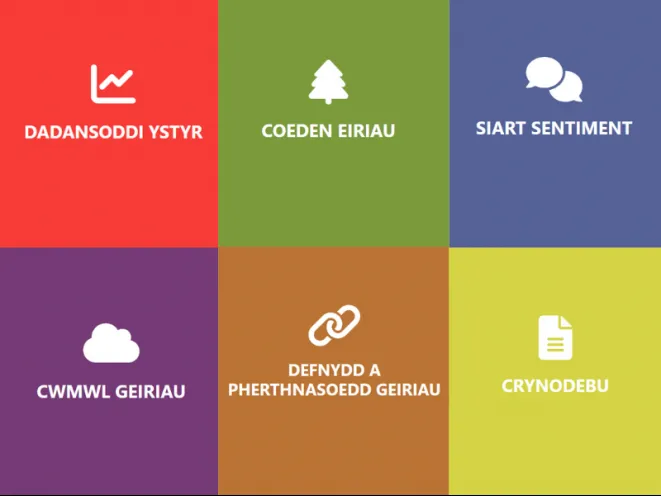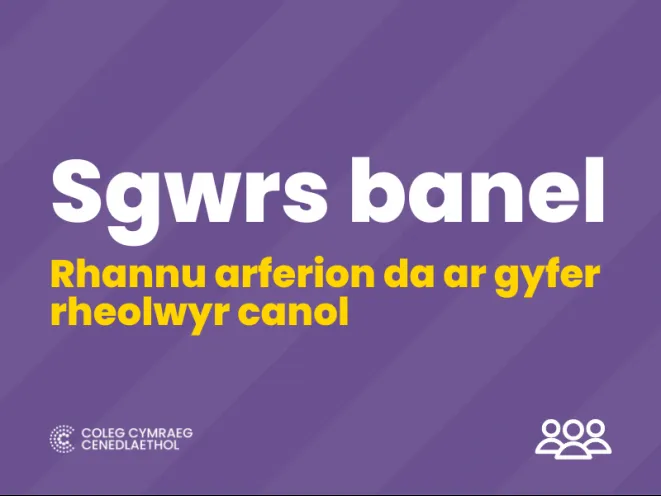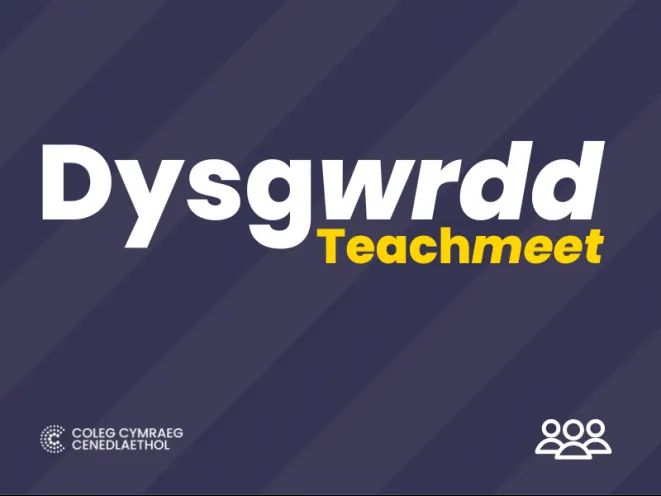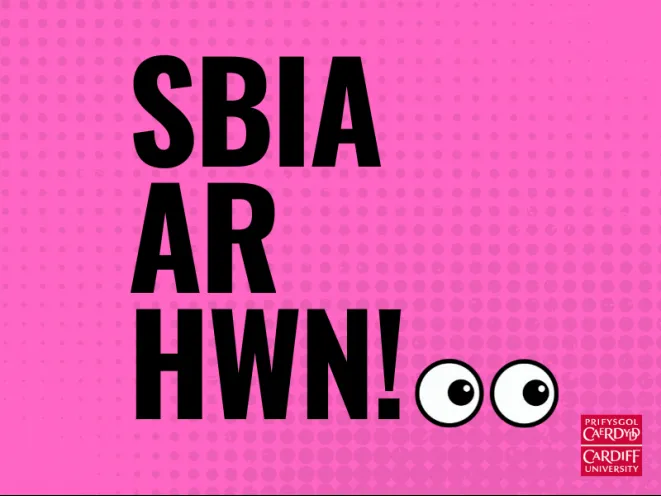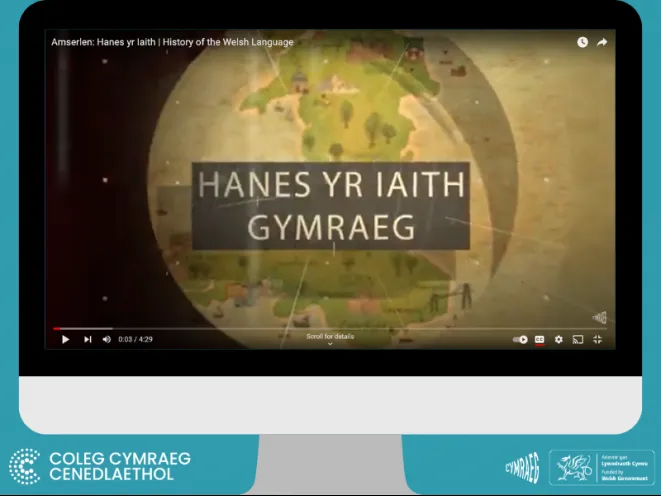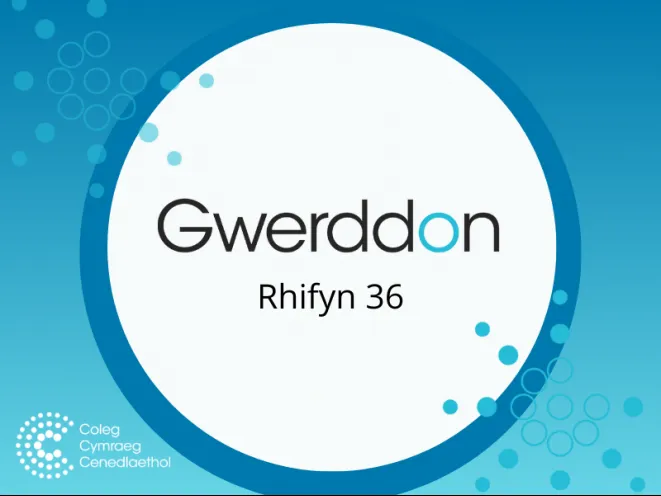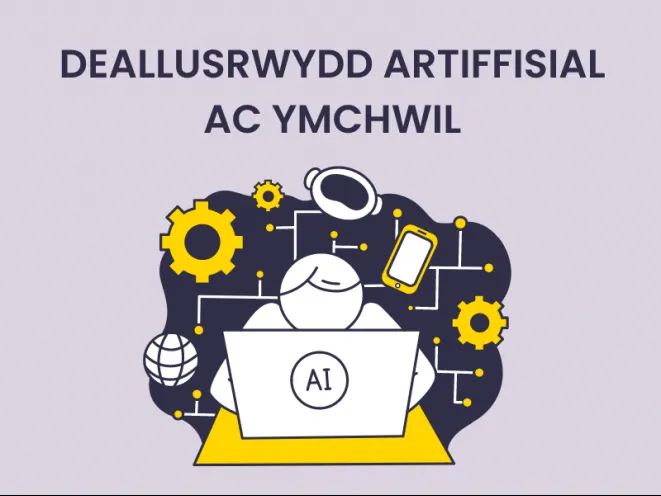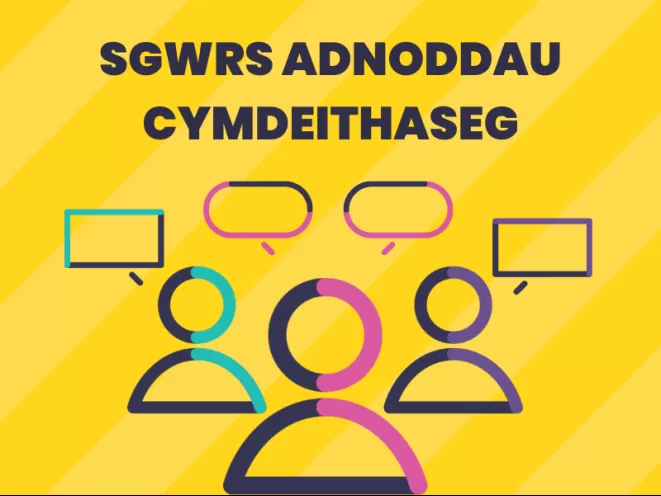FreeTxt helps you analyse and visualize free text data in Welsh and English, such as data from surveys and questionnaires. FreeTxt enables you to perform up to six different types of textual data analysis for each file. You don't need to be able to code or learn how to create graphs, either - FreeTxt does the hard work for you!
Sharing good practice for middle managers
Panel discussion: Sharing good practice for middle managers (further education and apprenticeships) A recording of a panel discussion with four Further Education curriculum area managers as they discuss their approach to increasing bilingual / Welsh provision within their departments. They discuss their good practices as well as how they have overcome challenges: Yusuf Ibrahim, Assistant Principal – Higher Education, Academic Studies, Foundation and Adult Learning - Cardiff and Vale College (Chairing) Lucy Breckon, Work Based Learning Manager (Health, Care and Commercial Enterprises) – Pembrokeshire College Rhian Pardoe, Health and Care Learning Area Manager – Gower College Swansea Amy Thomson, Sports and Public Services Program Manager – Grŵp Llandrillo Menai Rachel Lewis, Construction Curriculum Manager – Bridgend College The event took place on the 5th of February 2025.
PGCE PcET TeachMeet
Are you studying the PGCE PcET course? (Post Graduate Certificate in Education, Post-compulsory Education and Training). Speak Welsh, or want to increase your confidence in using the Welsh language? Catch up with this session! Sgiliaith joined us to give advice on how to encourage and support students to work through the medium of Welsh, and an experienced staff member who now teaches bilingually in the sector highlighted some useful resources. This session took place on 29 January 2025.
Meat Production
Beef and lamb production website for learners studying a Level 2 and 3 qualifications in Agriculture. Here you’ll learn about different aspects of the meat production industry, from finance and business management to suitable breeds and different systems. Get browsing! The website contains seves units on producing beef: Overview of the UK Beef Industry Beef Cattle Breeds Suckler Cow System and Source of Store Cattle Introduction to Beef Finishing Systems Managing Herd Fertility and Replacements Health and Welfare of Beef Cattle Business Considerations When Beef Farming and seven lamb production units: Overview of the UK Sheep Industry Breeds and the Stratification System Understanding the Ewe Year of the Shepherd The Lamb Market The Main Sheep Husbandry Tasks Business Considerations When Sheep Farming
Social Work Conference
Social Work Conference 2024 - The Best of Both Worlds: Connecting Social Work Research and Practice in Wales A collection of presentations from the Social Work conference held jointly by Bangor University and Swansea University in March 2024. The main focus of the conference was on current research and good practice within Social Work in Wales.
Dyfodol Cymru (Future Wales) - Urban Planning in Welsh
This online resource was created for planning students who speak Welsh by lecturers from the School of Geography and Planning (GEOPL) at Cardiff University. The aim is to provide information and insight into being a planner in Wales. It contains four videos of Welsh speakers discussing different aspects of being a planner; working in Wales and/or using the Welsh language in the workplace. In addition, there are some links to written resources that may be useful. The project team hope to continue developing the resource in the future.
Podcon 2025: The Students
Recordings from the first podcast conference for students in Wales which was held by Cardiff University and Swansea University, with the support of Coleg Cymraeg Cenedlaethol. A series of workshops, panels and training sessions were held by experts within the podcasting world in Wales including: Aled Jones 'The Pod' Mel Owen Elin and Celyn (Don't Apologize) This was a great opportunity for experts from the media industry to share stories and advice with the students. Watch the highlights below.
Sbia ar Hwn!
This digital course has been designed to help educate students and GCSE and A-level pupils interested in a career in social media. This resource introduces the principles of how to create compelling, thumb-stopping content and how to create news stories on socials through the medium of Welsh. There is a special emphasis on the importance of knowing your audience, and which tone of voice to use in Welsh for various on-line audiences.
Video Timeline: History of the Welsh Language
A new video resource that brings the history of the Welsh language to life in 4 minutes. From its origins in the Brythonic language and the earliest written versions through the Acts of Union and the Industrial Revolution to the establishment of the Urdd and Welsh-medium schools in the twentieth century, this video goes from the year 40 to 2022, when the language was used for the first time in the biggest sporting stage, the football World Cup. “Today, over half a million speak the language and the Welsh Government wants to have one million Welsh speakers by 2050 so that the Welsh language becomes an integral part of everyday life, in communities, school, at work and in digital technology.” A resource to be used widely with learners of all ages, and specifically for Welsh Second Language A Level Unit 5 (The Welsh Language in Society). Welsh subtitles can be selected on video in YouTube (English subtitles available soon). Funded by Welsh Government.
Those without fault are yet to be born: the ‘Discourse’ and Ethics of Welsh Patagonia
The recent online public discussion about Welsh Patagonia has been characterized by a tendency to condemn the settlers from Wales on moral grounds. This article takes on this debate, weighing up how, and to what extent, it is possible for us to place Y Wladfa and its people on the scales of morality. It gives detailed attention to the writing of Geraldine Lublin and Lucy Taylor on the history, as examples of reflective, multi-layered analysis that succeeds in conveying the complexity and difficulties of the situation. Having offered this outline, Iris Marion Young’s ethical framework is applied to the history, in order to highlight key ethical considerations, following Catherine Lu’s application of the same ‘social connection’ model to Japanese colonial history. Some initial conclusions are offered about what is revealed. Author: Huw L. Williams
Artificial intelligence and research
A presentation by Dr Seren Evans on her research into the role of Artificial Intelligence in predicting non-contact leg injuries within Rugby Union, and a recording of a panel discussion on artificial intelligence and its implications, challenges and opportunities for researchers with: Dr Cynog Prys, Senior lecturer, Sociology and Social Policy, Bangor University Dr Seren Evans, Lecturer, Sports Sciences, Bangor University Dr Neil Mac Parthaláin, Senior lecturer, Computer Science, Aberystwyth University Professor Huw Morgan, Physics, Aberystwyth University The event took place in Aberystwyth on 27 June 2024.
An introduction to sociology resources
A 20 minute talk introducing resources created by Sociology lecturers. The resources that are showcased will be useful for teachers, pupils, learners and lecturers to support their teaching and learning. They can all be found on the Porth. These include: 'PAAC' resources which are on the themes of: Introduction to Sociology, Education, The Family, Research Skills, and Social Inequality Study of Contemporary Wales self study module Social Sciences: A Sociological Theory self study module Esboniadur Gwyddorau Cymdeithasol (Sociology Explainer - the Esboniadur is a collection of Welsh medium wicipedia style pages on a range of topics).

